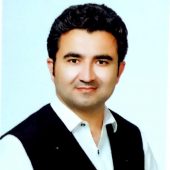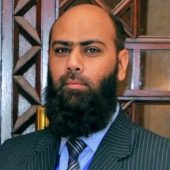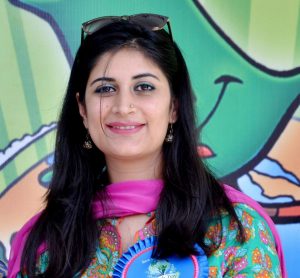In Asia, we conduct research in Pakistan and Afghanistan.
These two countries offer quite different contexts in terms of the way community-oriented policing is approached. In Afghanistan, police reform has been a part of a larger reform agenda after years of war, where the international community has been a strong contributing actor. In Pakistan on the other hand, conflict has taken the form of military operations in the border regions and terrorist activities elsewhere as well, and there has been no concerted effort by the international community to drive police reform, aside from bilateral assistance.
The work package has given particular attention to exploring issues of trust between the police and the community, including police integrity; and to how ICT and other innovations might contribute to improving community trust in police, both in terms of access of vulnerable groups to services, and in preventing crime and radicalization, particularly of youth.
Contributing staff
Ingrid Nyborg

is the ICT4COP Project Leader, as well as the leader of Work Package 2: Comparative COP, Work Package 6: Gender, and Work Package 8: South Asia. Dr. Nyborg has extensive experience in research and teaching in human security and post conflict development, with a specific focus on gender in development. She has worked extensively in Africa, as well as South Asia, where her most recent research has focused on post-conflict development in Afghanistan and Pakistan. She has considerable experience in project leadership, action research with civil society, and qualitative field methods.
Bahadar Nawab
 contributed to WP 8 as team leader for the research conducted in Pakistan. His research focus has been on reform processes in the police, with a particular emphasis on how the police link to local institutions. Nawab has interdisciplinary academic background majoring in Environment and Development Studies. His core areas of specialization are in post crises development, community-based policing, conflict, peace and development, institutions and policy analysis, institutional bricolage, livelihoods and human security, climate change adaptation water supply and sanitation leading to sustainable development.
contributed to WP 8 as team leader for the research conducted in Pakistan. His research focus has been on reform processes in the police, with a particular emphasis on how the police link to local institutions. Nawab has interdisciplinary academic background majoring in Environment and Development Studies. His core areas of specialization are in post crises development, community-based policing, conflict, peace and development, institutions and policy analysis, institutional bricolage, livelihoods and human security, climate change adaptation water supply and sanitation leading to sustainable development.
Jaishankar Ganapathy

contributed to ICT4COP’s Work Package 8: South Asia, Work Package 4: Police Training and Education, and WP5: Youth Issues. His research focused mainly on Afghanistan, including COP in Afghanistan, Norwegian police contributions in Afghanistan, Youth in Afghanistan, as well as other broader considerations of COP and police reform.
Shakir Ullah

contributed to ICT4COP’s Work Package 8: South Asia, collecting data from field study areas in Pakistan and writing multiple articles for the project. Additionally, he took part in various meetings, workshops and conferences of ICT4COP, and performed other administrative tasks related to the project.
Tahir Maqsood

contributed to ICT4COP’s Work Package 8: South Asia, investigating how information and communication technology can be leveraged to implement COP considering the local context. He is also a member of the team working on a pilot project for developing an application to assist different stakeholders involved in handling gender-based violence cases.
Abda Khalid

contributed to ICT4COP’s Work Package 8: South Asia, as a member of the research team at COMSATS Abbottabad, with a focus on exploring gender-based violence and community policing in post-conflict areas in Northern Pakistan.
Sajjad Madani
 worked as part of WP8 to advise the team working on use of information and communication technologies (ICTs) for community-oriented policing. He actively participated to establish collaboration between WP8 researchers and various government and non-governmental organizations for the development of pilot project. He was instrumental in organizing seminars, workshops, and other disseminations activities of WP8.
worked as part of WP8 to advise the team working on use of information and communication technologies (ICTs) for community-oriented policing. He actively participated to establish collaboration between WP8 researchers and various government and non-governmental organizations for the development of pilot project. He was instrumental in organizing seminars, workshops, and other disseminations activities of WP8.
Ajmal Nimruzi
 contributed to the ICT4COP as a researcher on the Afghanistan case. He conducted extensive qualitative field research in several provinces, in both rural and urban areas, and co-authored several articles on COP in Afghanistan, with particular focus on local institutions, youth and technology.
contributed to the ICT4COP as a researcher on the Afghanistan case. He conducted extensive qualitative field research in several provinces, in both rural and urban areas, and co-authored several articles on COP in Afghanistan, with particular focus on local institutions, youth and technology.


